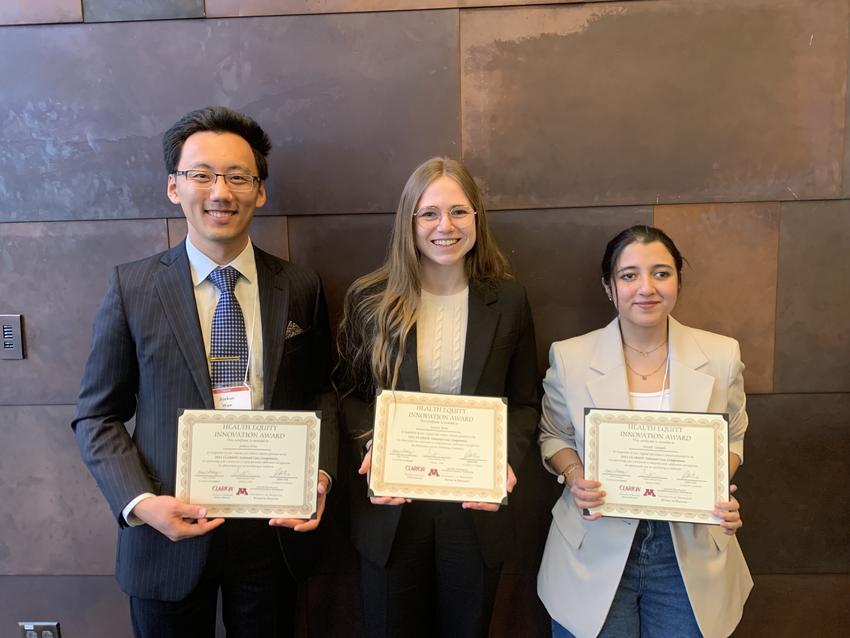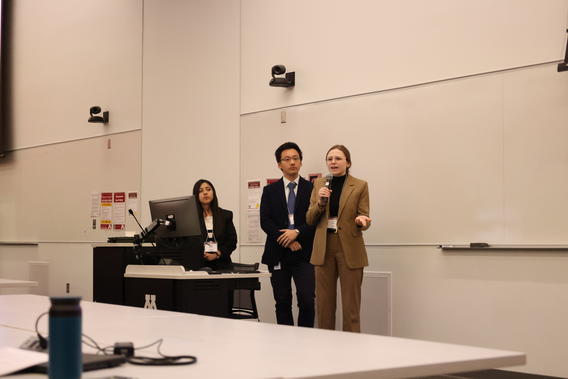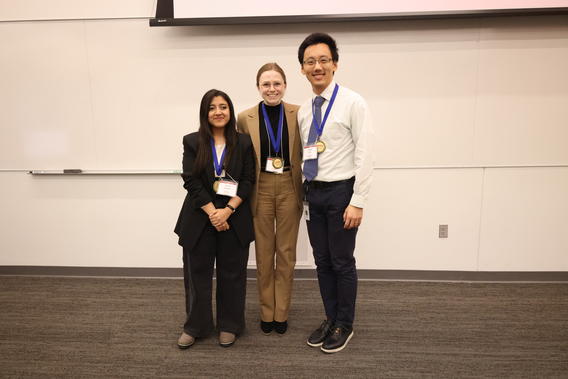Dentistry learners participate, place in CLARION case competition

Two School of Dentistry learners participated in the CLARION Local Interprofessional Case Competition in February.
The Clinician Administrator Relationship Improvement Organization, housed within the Center for Health Interprofessional Programs, creates interprofessional experiences for health professional students with experiential learning focused on systems-level changes and health care for all.
On February 24, students participated in the case competition, with 23 students across healthcare professions. The competition, with a case titled “Pandemics Past, Present, and Future: Emphasizing Trust & Equity in Emergency Preparedness and Response,” focused on how to prepare and respond to a pandemic.

Teams were asked to design a response to deal with the spread of misinformation and hesitance toward treatment during a pandemic, choosing between a school district, a nursing home or a turkey farm. They had one month to put together a case, presented in fifteen minutes to a panel of judges.
Molly Roettger, DDS ’25, participated alongside a public health student and a pharmacy student, placing third in the competition. Her team pursued data collection with educators throughout Minnesota and other states.
Roettger took pride in her team’s self-led data collection. “We took this case very seriously, and wanted to uplift and empower the voices of teachers in our response,” she said. Additionally, she benefited from the interprofessional nature of the project.
“I was surprised by how much we had in common. We are all very academically driven, and put in a good amount of effort toward this case,” she reflected. “Though the workload was intense, I appreciate the connections I made with my team members and the ability to get outside the dental school bubble and broaden my horizons.”
Lauren Kress, first-year DDS/PhD student, joined the winning team, along with public health student Anandi Ganguli and pharmacy student Juekun Wen.
“It was a great experience to work with students from other programs here at the university, as it gave me a better sense of what working as part of a healthcare team is like,” said Kress, whose team also chose the educational setting. “We each brought not only our own personal experiences into the case planning, but also knowledge gleaned from our individual programs and departments.”
Kress was “proud of the work we put into crafting our case, and it was surreal to not only place in the top three but in first place.” In particular, she was proud of the way her team focused on barriers underserved students faced during the COVID-19 pandemic, using those barriers as a way to explore new solutions.

Kress and her team moved on to the national competition, hosted at the University of Minnesota on April 12-13, where they presented their case again and joined a simulated experience providing information on vaccine hesitancy.
Kress and her team received one of three Health Equity Awards at the competition, recognizing their commitment to interprofessional collaboration and creative solutions.
“We were honored to win this award at the national level, and it was wonderful to know that the efforts we made to center our case on equitable access to resources and health information were apparent to the judges,” Kress reflected. “This program has been an excellent way to engage with students outside my area and to think critically about health care challenges in the community.”